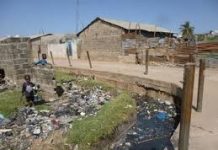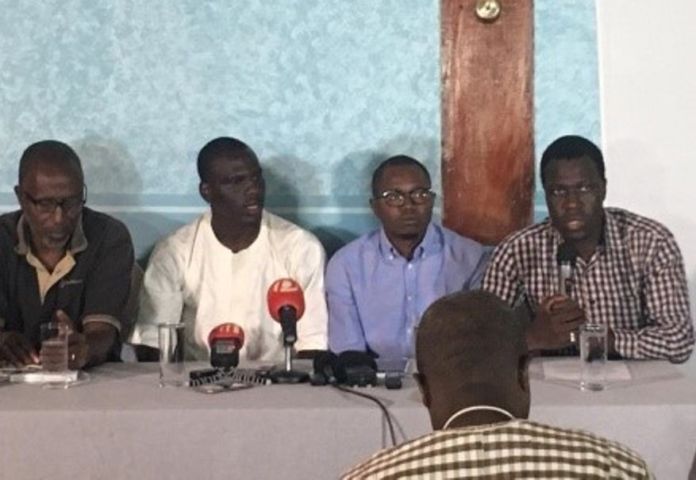By Mustapha Jallow / Makutu Manneh
Greenpeace, a non-governmental environment organization on Wednesday October 23rd 2019 launched its report on the exportation of fishmeal and fish oil in West Africa by foreign investors.
During the event held at a local hotel in Kololi, a Greenpeace official called on West African states to take immediate steps to stop the threat to sub-regional fish stocks for the security and livelihood of their people.
According to the Official, the fish stocks on which these coastal countries of the sub-region depend on is being diverted for local consumption to factories where it is turned into fishmeal and oils for export to foreign countries.
The group raised strong concerns about the expanding fishmeal industries in Mauritania, Senegal and the Gambia.
“All three species of fish used for FMFO are essential for food security and they are being over-exploited. Rather than feed the local people, West Africa’s fish stocks is increasingly nourishing the fish firms of other countries,’’ the official said.
Mustapha Manneh, the Greenpeace consultant in the Gambia explained how fishmeal industries came into being in 2015; that the industry started with Golden Lead in Gunjur which has not operated during the former Government and returned to China. According to Manneh, the Golden Lead family came back to Gambia following the change of Government in 2016; that another fish meal factory owned by a Chinese and counterparts in Mauritania was built in Kartong but started operating in 2017; that the Nessim fishmeal factory also owned by a Mauritanian but operated entirely by the Chinese, was built in 2017 but started operation in 2018 in Sanyang village.
“We want to bring to the attention of Gambians, the environmental issues affecting the country because we tend to realize that these fish meal factories are badly polluting the environment. You will not know how bad the smell is around the vicinity of these factories until you visit the area. The toxic waste they produce from their factories is a bad smell that everyone inhales in Sanyang and Kartong. The pollution has brought community members together to stand against the factories,’’ he explained.
The Greenpeace consultant continued that it is not only the bad smell that the community face, but how these fish meal factories treat their waste.
Manneh however said there was a requirement put in place by the Gambia Government that every fish meal investor should have a treatment plant and should be able to conduct an impact assessment for these communities; but that none of these communities were lucky enough to lay their hands on this social assessment.
“It would be a disaster if Government did not conduct their assessment to know the impact that the fishmeal factories have on these communities. It is a real concern to us, because we believe that the environment that we live in should be clean and friendly as well,’’ he said; that division erupted in these communities as a result of the activities of these fishmeal factories polluting their environment. He pointed out that these fish meal factories buy fish at low prices than the local people.
“When a basket of fish costs D300 for the local people, the fish meal factories would buy it at D200 and the price will definitely reflect on the market. If the prices are expensive, then the poor would not be able to afford it. The issue of the level of poverty in the Gambia is high because fishmeal factories are taking all stocks that belong to local people to feed their pigs, chicken and other farm animals,’’ he said; adding that most of the fishmeal factories sell the fish caught in Gambian waters at high prices to Gambians.
In his opening remarks, Bakary Coulibaly, the Communications Officer at Greenpeace said the international body was established in 1971 with the aim of tackling pollution and against the exploitation of fishmeal industries in West Africa.
Momodou Semega Janneh, an environmental activist said it is irresponsible for Government departments to be involved in allowing the fishmeal factories to operate in communities; that they do not only disturb villagers but also affect the country’s tourism.
Dr. Alieu Bah, Greenpeace’s political adviser said fishmeal factories pollute the environment of some of West African countries because the factories operate close to residential areas. “People depend mostly on fish especially the people,” he said.
Abdou Kunta Fofana, a fisherman from Sanyang said Government should stop the operation of fishmeal factories: that from their observations, the smell causes sickness among the people.
“The trawlers are also killing the small fish,” Fofana said; that as at now the lives of communities are at risk because of the bad smell they inhale every day.



















